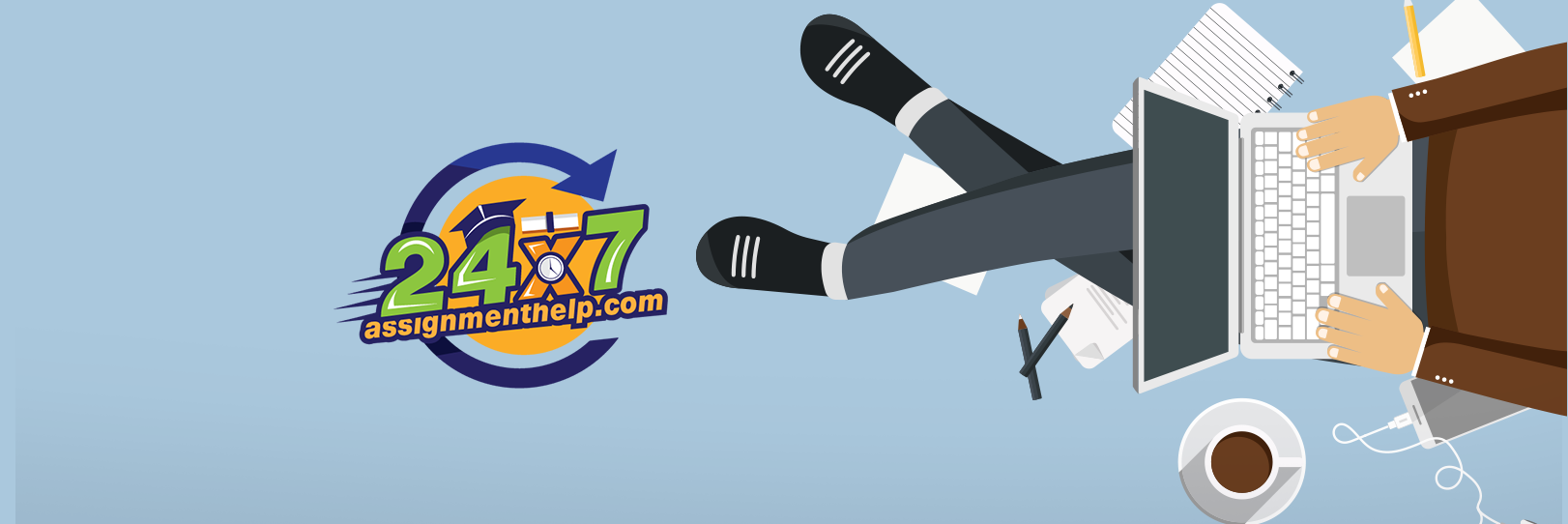Chemical Engineering is a branch of study that has a huge impact of every day technology and infrastructure of the world. At the most basic level, it is concerned with the composition of various things, which are evolved from experiments that are carried out in laboratories and then they are implemented in the real world. The findings are thoroughly tried and tested.
Chemical engineers have much scope professionally because the knowledge of chemical engineering is something that is utilized by numerous industries including oil, chemicals, energy, pharmaceuticals, biotechnology, environmental engineering, so on and so forth. As a consequence, a large number of brilliant youngsters opt for this career option every year, and consequently they are required to deal with chemical engineering assignments during their coursework.
Now, there are multiple troubles that are faced by students during these years, and hopefully, these 100 Unique Ways to Complete Chemical Engineering Assignments will assist to deal with those problems.
Subjects one has to study
Chemical Engineering students study more than one core subject. The primary emphasis is on maths, physics, and what is known as physical chemistry. As such, students are required to solve mathematical problems and learn theories, and both of these need to be applied simultaneously in any said assignment. Some students struggle with one aspect while some struggle with the other.
However, as long as students are sincere in their studies, attend the lectures regularly; they should be able to learn. Some specialized areas of studies might also require the students to study biology. What is important to note is that students who are particularly interested in chemistry should not sign up for a chemical engineering course, where the engineering aspect would require students to focus on physics and mathematics as well.
What does one learn during a chemical engineering course?
The scope and depth of the course would vary for undergraduate and post graduate courses. Nevertheless, some of the things that students would learn are applied mathematics, computing, physics, and so on. In a Master’s degree programme, students have the choice go opt for specialized studies where they take up one specific branch, like biotechnology for example, and earn an advanced degree on the same.
Apart from these, students would also be exposed to large scale industrial equipment. This is where the course becomes a lot more challenging, and the students’ learning has to go beyond the classroom. They acquire practical in-hand knowledge which they later go on to employ in various industries.
Laboratory work also forms a huge part of the course. Finance, ethics, and environment are some of the other subjects that chemical engineering students are required to study.
The assignments that chemical engineering students are required to do are more likely to involve laboratory work or might require them to deal with various industrial equipment. This makes the whole assignment quite different from the usual ones, because the very foundation of the work often becomes the practical experiments one has to carry out.
As such, one must first grasp the theoretical knowledge of their subject and then apply the same to their experiments. It goes without saying that the course might expose the students to certain hazards, and hence, learning the safety protocols should be one of the first and foremost priorities.
Chemical Engineering jobs
Chemical engineering students can land various types of jobs in various industries, and they might be required to work on manufacturing, transportation, quality assurance, consultation, so on and so forth. The pay scales are usually quite high but so are the risk factor for health hazards and therefore, one should take their course as seriously as they can, to ensure safety for themselves and the world around them, because the work they eventually do with have the potential to affect lives.
- Unique Ways to Complete Chemical Engineering Assignments:
- Do not miss the lectures
The first step may be the student’s attentiveness in class
- Be a good listener
Listen to the teacher and learn all you can in class
- Be interactive
Every time you have a doubt, make sure you ask the teacher about it
- Take down notes
Take notes while attending the class
- Attend the lab
Chemical engineering students should never miss the practical classes
- Observe carefully
In initially, the teachers would guide students with the experiments. This is when one should pay utmost attention
- Keep your mind open
When a student is asked to carry out an experiment on their own, they should focus on what steps they are following and what the outcome is.
- No scope for errors
Within the lab, certain errors can lead to accidents, hence one should be careful
- Know and use precautions
Certain precautions must be taken while carrying out experiments in the lab. The students should never ignore those.
- Write things down
It helps to note down the steps one by one, the observances at every step, and the inference drawn in the end
- Rectify mistakes immediately
When the experiment does not go right, it should be evident immediately and the possible mistake should be corrected
- Reach out to the lab guide
In case of confusion do not hesitate to reach out to your guide present there
- Practice
Carry out the experiments as many times as you can to ensure perfection
- Delve into the text books
The first step should always be the procurement of knowledge and for that one needs to study
- One chapter at a time
Instead of trying to binge study, a student should focus on one chapter or topic at a time and explore it thoroughly to know as much they can
- Read multiple books
The more books you read, the more you shall learn, and the better your assignment would be
- Get the theories right
There would be a multiplicity of theories and laws which one needs to know by heart at this level
- Understand the equations
Chemical engineering would require students to solve problems and equations; one should first focus on understanding how they work
- Get the numbers right
While solving the equations one needs to get the numbers right or the practical execution would not work out as planned
- Planning the assignment
When a student has been attentive during lectures and lab work, they should not have trouble planning the assignment
- Think about the assignment
Think about the assignment that has been allotted and the possible topics you could work on
- Shortlist the topics
Shortlist the topics you would like to work on
- Area of interest
At this juncture, one should choose a topic that naturally interests them so they would actually enjoy doing the work.
- Weigh the pros and cons
Each assignment topic will have some perks, pick the one that requires just the amount of work you are willing to do
- The topic should contribute new knowledge
Pick a topic that would help you to learn something new in the due course and something that would possibly bring to light new information
- Pick something interesting
A dull topic would fail to create an impression
- The topic should be relevant in the recent times
The topic of the assignment must have contemporary relevance
- Do background reading
Once the topic has been chosen, read up as much as you can about it
- Create a bibliography
Create a list of books, research papers, articles that you plan to read before proceeding with the assignment
- The lab requirements
Make a list of the practical experiments you might have to carry and the equipment that would be required
- Decide the place
Determine if you can carry the work out at home or would you need to access the lab. It will probably be the latter.
- Organize the plan
Now is the time to create a schedule. Allot separate time for reading, lab work, and writing down the dissertation. The time for correction should also be separate.
- Further sub divide the work
Determine the time you would spend reading about one topic. Divide the entire lab work across days if that is possible. Keep enough days at hand for writing it all down. Keep extra time for problem solving.
- Optimization
The deadline should be kept in mind and the work should proceed accordingly.
- First the reading
If you have allotted yourself 5 days of study time, you should finish it during that time.
- Study for 6 to 8 hours a day
Studying for 8 hours a day should enable you to cover enough literature on the topic in 5 days.
- Take short breaks
While doing the 8 hours stretch, one should take a break at least every two hours.
- Refresh your mind
Refresh your mind with music or a walk or meditation before returning to the books again. This helps to restore concentration.
- Make a habit of meditating
Meditating every day improves a person’s patience and memory, which can be useful when studying intensively for long hours.
- Understand what you are learning
The students must try to understand everything they are reading, and not just skim through the texts or equations.
- Ask teachers for help
If you come across something that seems confusing, you should immediately seek the guidance of a teacher.
- Use online help
Various forms of academic helps are available online these days. You can search for informative articles, YouTube the solution for a problem, attend online lectures, or consult with expert professionals about the assignment.
- Pay attention while solving problems
The equations can stretch on and on sometimes, and it is best to stay focused to not make any errors.
- Do no fidget
If you find yourself stuck with a problem, don’t spend hours fidgeting over it. Leave it for a while and come back to it later.
- Lab time
Once the theory portion is relatively in grasp, one should move on to the experiments they want to conduct.
- Intimate the lab assistant in advance about the time when you would be using the equipment
- Have ready notes on the experiments
The experiment should be charted down step by step before you perform them.
- Carry out the part allotted for the day
Carry out the experiments little by little, unless it is an experiment where everything has to be done at once.
- Write down the observations
The observations should be thoroughly taken down.
- In case of a problem
In case the experiment seems to be going wrong, ask a professor what you should do.
- Follow safety protocols
During the practice session and during the actual experiment, one should always adhere to safety protocols.
- Finish the experiment on time
The practical work shall be wrapped up within the stipulated period of time.
- Keep an eye on progress
Make sure you are making progress with the work at a pace that would allow you to finish the project on time.
- Ideal results
Students might be able to make an educated guess about the possible conclusion. Keep checking if the work is going accordingly.
- Do not forge the observations
Sometimes, in order to do minimal work, students forge ideal observations. This is unethical and can render the whole assignment redundant.
- Double check the results
The results should be double checked before the observations are taken down.
- Writing the dissertation
Once the experiment is fairly through one can start write the dissertation?
- Beginning, middle, and end
The assignment should have a proper introduction, body, and conclusion.
- Explain what you are doing
In the introduction part, one should try to briefly explain the experiment they are planning to undertake.
- List your methods
Next, one should mention the methods they choose to follow and why they think these methods are credible.
- Short and succinct
The introduction should not drag on for too long but it should adequately explain the purpose of the dissertation and must be impressive at first glance.
- Language is important
Know that the professors would be going through multiple assignments, and for one assignment to stand out, it must be well written and sound interesting.
- Go through the observations
The observations made during the lab work should be noted down in the dissertations.
- Details of the experiment elaborated
The experiment, the condition, the equipment used should all be thoroughly noted down and the inferences duly registered.
- Avoid distractions
Students should avoid distractions while writing their thesis to minimize errors.
- Stick to the routine
They should follow the study routine to finish the work on time.
- Stay away from gadgets
All gadgets like cell phones and tabs should be kept away and not accessed while working on the dissertation.
- Do not log into social media
Logging into social media accounts can cause the students to lose focus of what they are doing.
- Do not procrastinate
Once you give in to procrastination, you will find yourself in a never ending loop and there is no way out of there.
- Study and write
Writing the dissertation can be exhausting. One should keep up with the reading to balance their work.
- Access the library
For access to maximum resources, go to the library. Also, it is an ideal place to work in peace.
- Maintain a back up
A backup of the assignment must be maintained at all times.
- Rejuvenate yourself
When you have been working for hours, give yourself leaves every now and then to rejuvenate your energy.
- Limit the breaks
Breaks are necessary but they should not continue for hours. Working for an hour and resting for two ruins a person’s productivity.
- Eat healthy
Following a healthy diet helps a person to stay energized and work for longer hours.
- Snack breaks
While working on the assignments, one can take snack breaks once in a while to fuel themselves.
- Maintain a healthy sleeping pattern
Never stay up all night studying because it would reduce your ability to work the following day and leave you perpetually exhausted.
- 8 hours of sleep
No matter what you do, do not forget to catch up on 8 hours of sleep.
- Power naps
Power naps in between exhaustive study hours can work like miracles.
- Do not give in to panic or anxiety
At any point while working on the assignment, a student should not give in to panic or anxiety.
- Stay in charge
If something goes wrong, know that a solution is always at hand. Think objectively how the error can be undone and do the needful.
- Time management
If one follows a schedule right from the start and sticks to it, they would not have to panic about the completion.
- Leave scope for mistake
Allot more time to each segment of the work than you actually think you would need. This way there will be enough time at hand to correct mistakes.
- Ask for help
Whenever you feel like you could use the help of another person, does not hesitate to ask for it from a friend, professor, or senior.
- Sum it up
In the concluding portion, the experiment should be nicely summed up.
- Enlist your findings
The results that were discovered during the course of the research should be enlisted in a systematic and chronological manner.
- Mention the inference
Mention the inference you have thus drawn from observations and explain how you arrived at those conclusions.
- Wrap it up well
In the end, having succinctly stated the purpose of the experiment, the findings, and the failure or the success of the experiment, wrap up the assignment in a scholarly fashion.
- Bibliography
Make a list of all the sources, primary or secondary, that were used.
- List the illustrations
Illustrations, if used, must be numbered and enlisted.
- Number the charts and experiments
The tables and experiments should be numbered and enlisted.
- Acknowledgement
Do not forget to acknowledge the contributions of all the people who helped you with the assignment, including your professors. If some previous researcher’s work is particularly relevant to yours, do not forget to explicitly mention it.
- Plagiarism must be avoided
Under no circumstances should a student plagiarize or appropriate an existing work.
- Go through the entire assignment
Once the assignment is completed, go through it all over to spot possible mistakes.
- Mistakes
The mistakes can mess up the whole assignment so it is better to keep checking for them at every stage.
- Keep separate time every day for revision
Every day, after that day’s work is done, the student should go through the new addition to the work to ensure they did not make any errors.
- Grammar
Students should not compromise with grammar while writing an academic assignment.
- Keep a copy
Students should always keep a copy of the work with themselves before they make the submission.
- Submit the work on time
The completed assignment should be submitted on time.
- Expert help for all sorts of disaster management
It might so happen that things might go wrong halfway through the assignment or towards the end with little to no time at hand. Under such circumstances, students are likely to panic and stress over the assignment.
However, the best way to tackle such a problem is to get expert assignment help that is available online. Such expert help can solve all problems at once and they are immensely helpful because:
- Subject specific teachers help out the students with the assignments
- With the expert help, multiple brains would be working on the project at once and hence it can be solved much faster
- Professors have knowledge that students do not, which means they can resolve mistakes even at the last moment
- When students access such help, they can get all their doubts clarified and questions answered during one on one sessions
- The experts are available 24/7 so students can get the help any time they need.
- If a student has no clue what they want to work can, they can reach out for expert help right at the beginning and the experts can show them the way and guide them all along
- It is always beneficial to have a personal academic guide to ensure that the assignment is perfect
Hopefully students will find these 100 Unique Ways to Complete Chemical Engineering Assignments useful and they will be able to solve their assignment with ease!


















